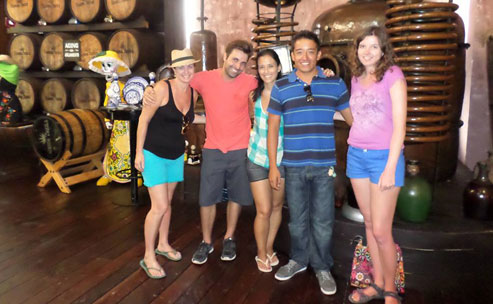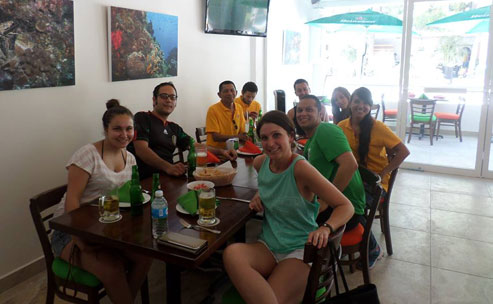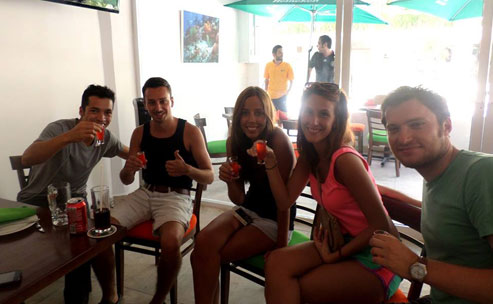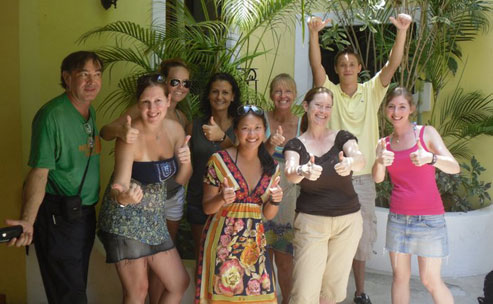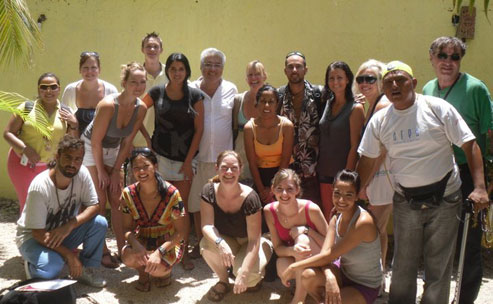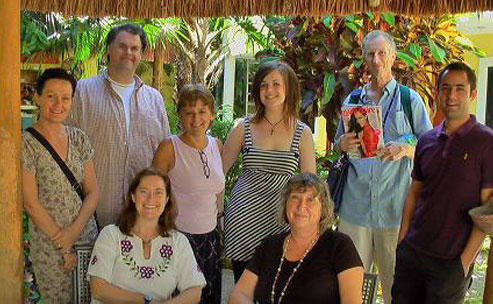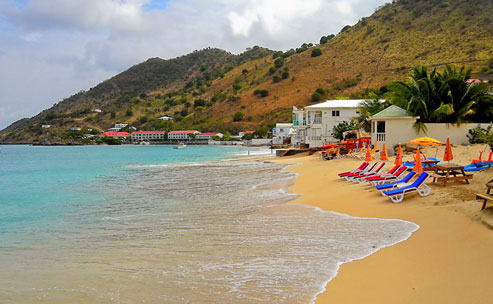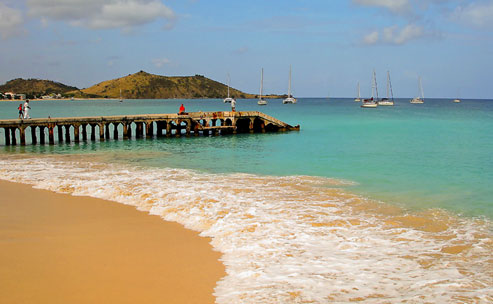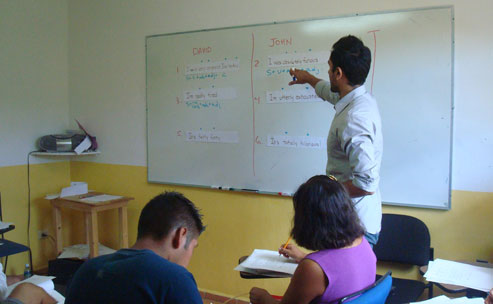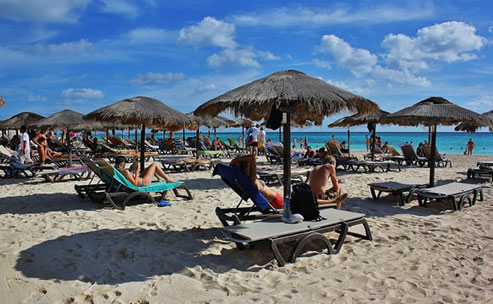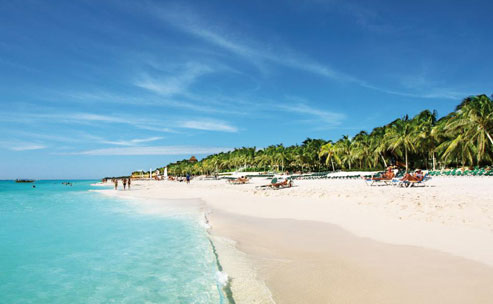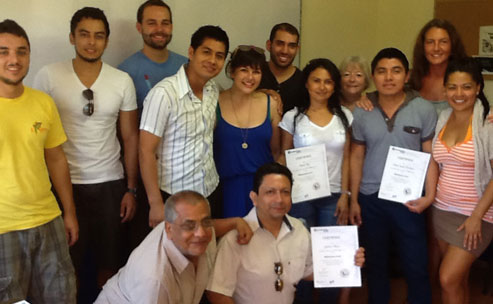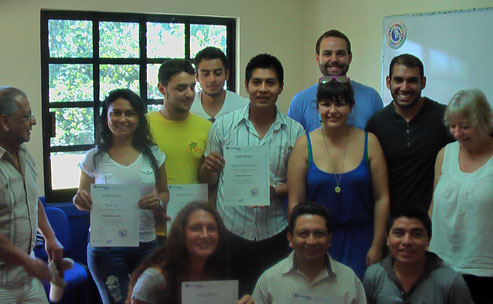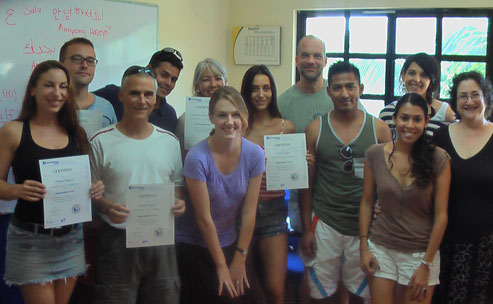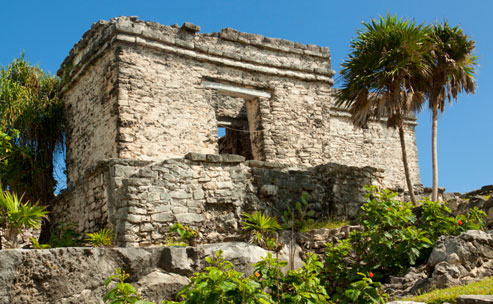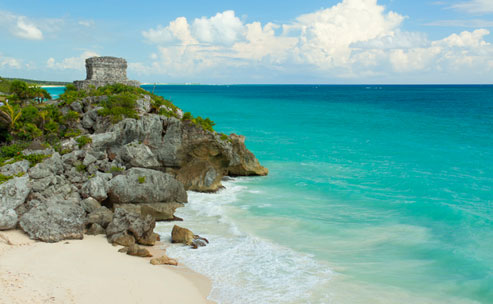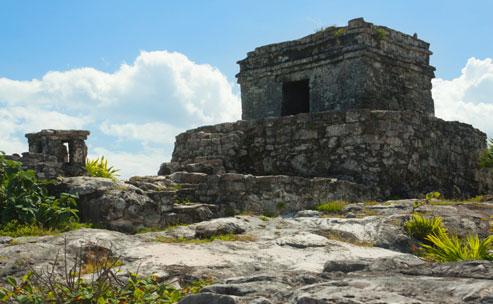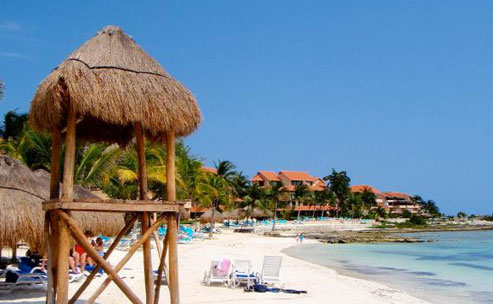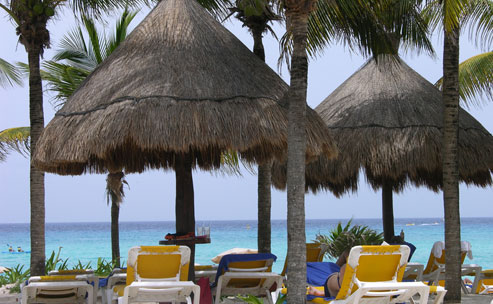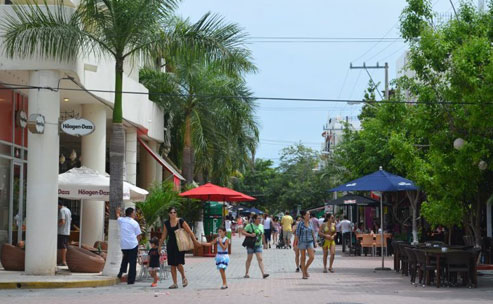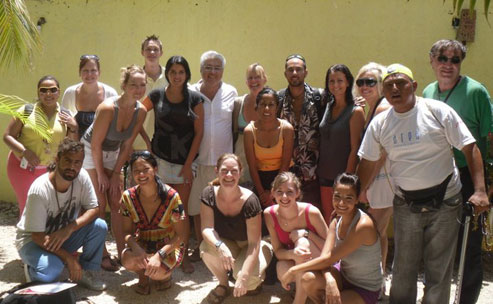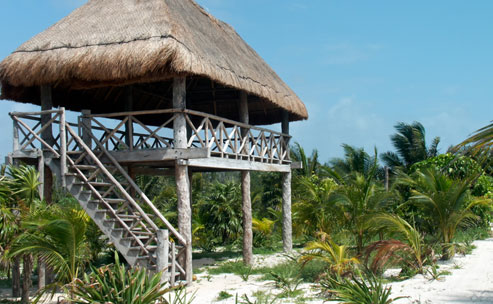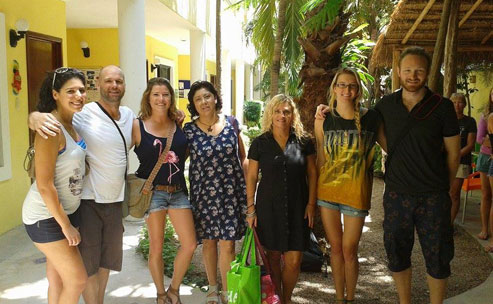A) Job Placement Information:
1. What kinds of jobs are available for TEFL teachers in Mexico?
Most of the teaching jobs are in language schools, universities, private and public schools.
2. What is the typical salary for TEFL teachers?
Please contact us for updated information.
3. In what ways does the school in Playa del Carmen help students with job placement?
The school gives a session on the course on Professional Development and Finding a Job to prepare the students for the job market wherever they choose to teach. We also forward any request or notices for teachers that are sent to us from other places and can give advice on the course as necessary, but we do not have the resources for a full job placement service.
4. What is the hiring season for TEFL teachers?
Classes at primary/secondary schools and universities start in August so full-time teachers are hired before that time. Language schools open new vacancies all throughout the year for hourly-paid teachers.
5. Where do most TEFL teachers find work after completing the course?
Primary and secondary schools, language schools and universities.
6. What kinds of students will TEFL teachers be teaching?
General English mostly, especially at schools, but there are always opportunities to teach ESP in hotels or universities.
7. What is the typical contract length for TEFL teachers? Is anything else included in the contract?
1 year. Usually it includes salary and social security.
8. What is your success rate for placing teachers?
85% is the success rate.
9. Can TEFL teachers do private tutoring on the side?
Yes, actually most of the teachers start doing private tutoring until they find a more stable teaching job.
10. How long does it take to find a job after completing the TEFL course?
Not long. Actually many of our CELTA students find a job a week after the course ends.
11. What documents will a TEFL teacher need to get a job?
Copy of degree, copy of certificate, letters of recommendations, work permit.
12. Do you provide your own teaching curriculum, if applicable?
Yes, we do.
13. What makes the course so intensive?
For most candidates the Teaching Practice occupies a great deal of time; mostly in lesson preparation and liaison with colleagues. There is also a great deal to take on board during the course and written work to do at the weekends.
14. What is TP?
TP (Teaching Practice) is your chance to experiment with ideas demonstrated by your tutors during input sessions and observation. On the intensive course TP takes place daily and lasts for about two hours. You share the groups of TP students with colleagues from the course. They observe you when you teach; you observe them when they teach. One of your course tutors also observes you teaching.
15. Who do I teach?
Most of the students at Riviera Maya are local Spanish speakers. However, we also have students from other countries. You will teach students at different levels including Elementary and Intermediate.
16. How long do I teach?
You start (on day 2 of the intensive course) with a 20-minute lesson. This gradually increases to about one hour by the end of the course.
17. Do I teach every day?
On average you teach every other day, although you may teach on two consecutive days at times.
18. What is “feedback”?
Detailed feedback on your teaching is usually held in the afternoon, after TP and input. You are encouraged to evaluate your own teaching and that of your colleagues. Your tutor will also provide oral and written feedback.
19. How am I assessed?
Assessment is continuous, there is no examination, and it is based on TP and the written assignments you submit and on your professional behavior/attitude. Your progress will be discussed and clarified during one-to-one tutorials with your course tutors.
20. What grades are awarded?
The majority of candidates are awarded a grade “Pass” some are awarded Pass “B”, and some Pass “A”. There is also a “Fail” category; very few candidates fail the course as our selection criteria is rigorously applied and places are only offered to those applicants whose application forms and performance at interview are of the required standard.
Your tutors will warn you if your work during the course is below standard. They will also advise you on the areas in which you need to improve, and give guidance as to how improvements may be made.
21. What written work will I have to do?
Four written assignments are set, one of which is divided into two shorter assignments; that is five separate pieces of written work in total. The assignments are not long in terms of number of words, but you may be surprised at how thought provoking they are – consequently you may well find yourself taking some hours to complete each one.
22. What is a typical day on the course?
A typical day on our full time course is as follows, although there are sometimes variations:
10:30am - 12:30pm Teaching practice (TP)
12:30pm – 1.00pm Break/Self-evaluation of morning’s teaching
1.00pm – 3.00pm Input session
3.00pm - 4:30pm Lunch
4.30pm – 6.30pm Feedback on previous day’s TP / Lesson planning
Outside of these hours, and on afternoon break, trainees are involved in continued lesson planning alone or with colleagues, writing assignments, and observing classes, live or on video.
23. Who do I observe teaching?
You usually observe your tutors teaching on one or two occasions, and experienced teachers on one or two occasions and/or experienced teachers teaching lessons on video. Observation of teachers takes place outside normal course hours.
24. I am not a native speaker of English – how good does my English have to be?
Cambridge entry requirements say that applicants must have an awareness of language and a competence in both written and spoken English, which will enable them to undertake the course and prepare for teaching a range of levels (The recommended candidate language level is C2 or high C1 – Grade A or B, on the CEFR.)
The equivalent scores in common English exams are TOEFL iBT 112; TOEFL PBT 650 + TWE 5.3; IELTS 7; CAE Pass B minimum.
If you cannot prove your English level with an up-to-date qualification, we may ask you to do a mock test as part of the application process.
25. I am not a native speaker of English – will this disadvantage me on the course?
No. As a non-native speaker of English it is highly likely that your knowledge of English language systems is more advanced than that of native English speakers on the course. It is likely that you will have studied English for some years and be conversant with a wide range of grammatical terminology. As a very successful language learner yourself you will also have insights into language learning that colleagues who have not attained such a degree of proficiency in a foreign language may not have.
However, it must be noted that should your level of written or spoken English decline for any reason during the course you may be withdrawn from the Cambridge scheme. This means that you will be able to continue with the course but will not be awarded the Cambridge certificate. (Please note that this occurrence is extremely rare.)
Some useful advice from past CELTA trainees!
- Do the pre-course assignment. Read the Harmer or Scrivener text. You will get far more out of the course if you are familiar with the material.
- Work hard, take it seriously!
- Know why you want to do this. (Or else you might not push yourself to complete it!)
- Know how you work best and find ways to make the course work for you.
- Take some breaks on the weekend, but if you want to be a “tourist”, just stay longer or come to Mexico earlier.
26. What makes the course so intensive?
For most candidates the Teaching Practice occupies a great deal of time; mostly in lesson preparation and liaison with colleagues. There is also a great deal to take on board during the course and written work to do at the weekends.
27. What is the cancellation policy?
Please contact us to know our current policy.
28. How is the weather like in Playa del Carmen?
February to May:
Spring is a beautiful time of year, with little rain and flowers everywhere. The sea is calmer and gets steadily warmer as temperature rises. Nights can still be cool, but a sweater is rarely needed.
June to August:
The summer in Playa del Carmen is hot. The water is so warm you can stay in for hours. Blue skies prevail. There is some rainfall with short heavy showers in the afternoon or evening. Nights do not get much cooler.
September and October:
This is the season for tropical storms and the occasional hurricane. It doesn't rain every day for two months, but there could be periods of more persistent rain. It's still warm.
November to January:
These are the coolest months in Playa, which means it's very comfortable. There might be some rain, but it's not very frequent. This time of year nights can be cool - temperatures can drop to as low as 12C!
B) Housing:
29. What kind of housing do you offer to students taking the course?
Our school offers students a range of accommodation options in Playa del Carmen. The options include:
New student residence:
Many of our CELTA course trainees stay at our student residence in Playa del Carmen, where we offer special prices for those staying more than 27 nights.
School Apartments / Studios:
For students who are staying in Playa for 4 or more weeks and who like to have access to kitchen facilities, we can provide fully-furnished self-catering studio apartments on campus. In this case, you have you own room with mini-fridge, TV and bathroom but the kitchen is shared with others.
30. What is included in this housing?
1. Student Residence:
Our purpose-built student residence is located in the center of Playa del Carmen, in a very quiet street, beside the town's main church and just two blocks (a 5-minute walk) from the school. The residence has three floors. The ground floor consists of the reception, an office, the kitchen and eating area, and 6 bedrooms; there are 10 bedrooms on the first floor and the second floor consists of 6 bedrooms and four terraces. All 22 bedrooms have twin beds and each bedroom has its own private bathroom. Bedrooms also have a desk, a TV, a small fridge, ceiling fans and air-conditioning. There are many launderettes within a 5-minute walk of the school. Students are able to book rooms for individual use or for two people coming together. Students are also able to choose between no-meals (in which case they can use the fully-equipped kitchen in the residence), or bed & breakfast.
Included: Use of telephone (in-coming calls only), air-conditioning, TV, WI-FI
2. The School’s Apartments (On-site Apartments)
The School has a number of apartments available for students on the school premises.
These include:
Apartment A:
A large studio room with two double beds; available for exclusive use of 1 or 2 students, A/C, Cable TV, kitchenette and private bathroom. This apartment also has access to a large roof terrace.
Apartment B:
This large, fully furnished apartment has 2-bedrooms; available as a shared apartment or for exclusive use of 1, 2 or more students, 2-bathrooms, a full kitchen, dining room/living room, balconies onto the street, A/C and cable TV.
On-site apartments are cleaned every day except on Sundays. A laundry service is not available on-site; however, we wash and replace sheets and towels once a week.
Students will have to take their personal laundry to a local launderette one block away.
Students staying in our on-site apartments have full access to the garden and keys to the front door of the school building so that they can come and go as they please. We rely on them to keep the front door locked when the school is closed.
Included: Arrival service at apartment, utilities (water, gas and electricity), cleaning service and weekly change of bed linen
Not included: Meals and use of telephone.
31. What is the cost of this housing?
For current prices, please contact us.
32. How long can students stay is this housing?
From one week up to an unlimited time.
33. Where is the housing located in relation to the school?
The Residence Riviera Maya is only 2 blocks from the school.
34. Can a partner/ spouse not taking the course stay in this housing as well?
Yes.
35. What is the meaning of "CELTA" or what does CELTA stand for?
CELTA stands for "Certificate in Teaching English to Speakers of Other Languages."


 ITTO School's Map
ITTO School's Map MEXICO
MEXICO Guadalajara
Guadalajara Puerto Vallarta
Puerto Vallarta Chiapas
Chiapas Playa del Carmen
Playa del Carmen ARGENTINA
ARGENTINA Buenos Aires
Buenos Aires ITALY
ITALY Florence
Florence CANADA
CANADA Toronto
Toronto Vancouver
Vancouver CHINA
CHINA Shanghai
Shanghai COSTA RICA
COSTA RICA Manuel Antonio
Manuel Antonio Playa Samara
Playa Samara CZECH REPUBLIC
CZECH REPUBLIC Prague
Prague FRANCE
FRANCE Toulouse
Toulouse GUATEMALA
GUATEMALA Antigua
Antigua PERU
PERU Cusco
Cusco SPAIN
SPAIN Barcelona
Barcelona Madrid
Madrid THAILAND
THAILAND Chiang Mai
Chiang Mai USA
USA New York
New York Chicago
Chicago Miami
Miami Online TEFL Programs
Online TEFL Programs Compare Course Features
Compare Course Features

